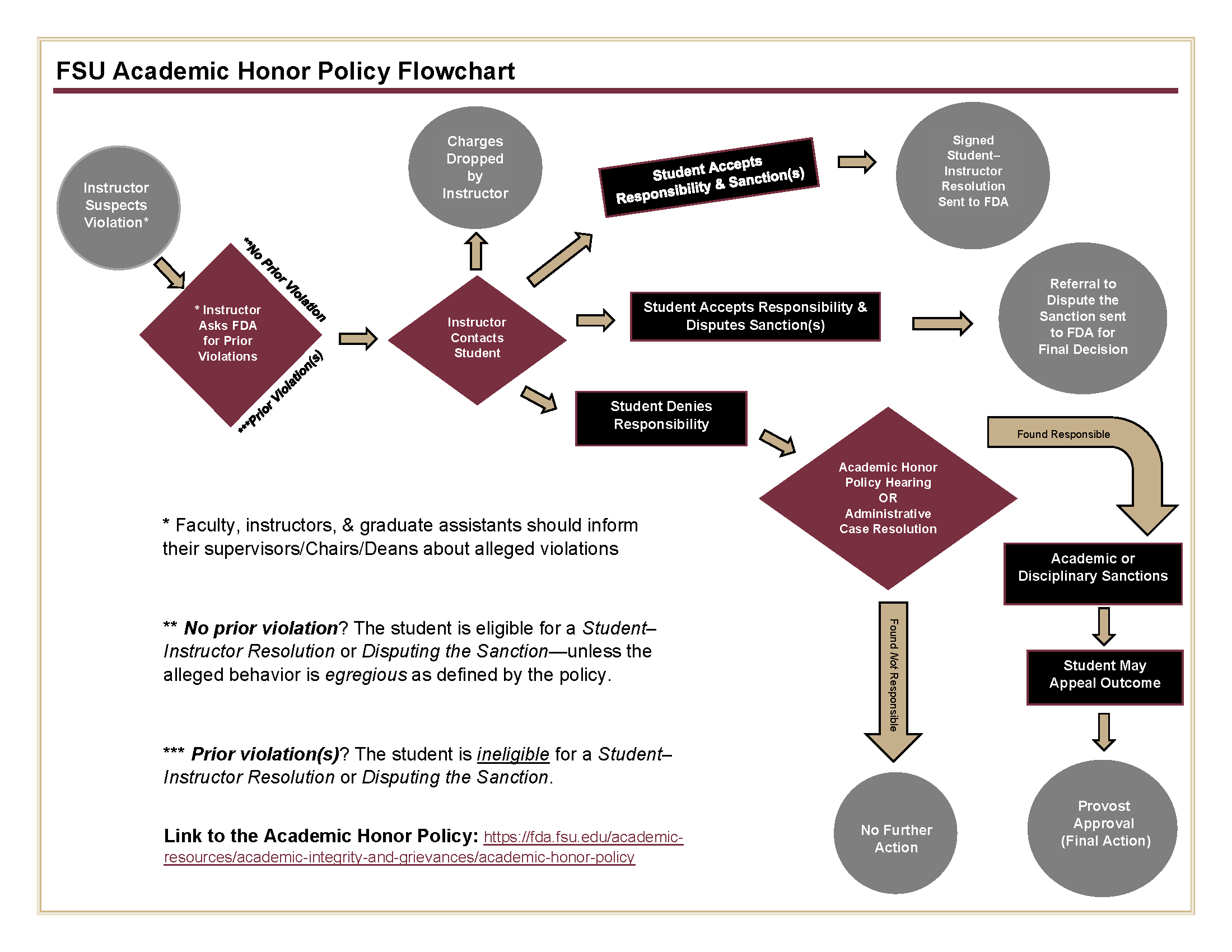Academic Leadership Toolkit
Academic Honor Policy
Overview:
The Academic Honor Policy is an integral part of the FSU academic environment. The policy outlines the University's expectations for students' academic work, the procedures for resolving alleged violations of those expectations, and the rights and responsibilities of students and faculty throughout the process. Instructors should remind students of their obligations under the policy and fully communicate their expectations to students. If an instructor encounters academic dishonesty, they should follow the procedures detailed below to resolve the alleged violation in a timely manner while protecting the personal and educational rights of the student.
Goals:
- To actively engage students and faculty in preventing academic dishonesty.
- To sanction appropriately those who violate the policy and deter second offenses.
Authority and Responsibility:
- Instructors have the authority to facilitate academic-misconduct resolutions with students.
- Teaching Assistants may facilitate academic-misconduct resolutions with approval from supervising faculty.
- Department chairs and deans are responsible for ensuring that the policy is being followed in their units.
- The Academic Administrator and Program Manager in the Office of Faculty Development and Advancement are responsible for campus-wide implementation of the policy and support for faculty.
- Advising is available to students to help them understand their rights throughout the process: https://fda.fsu.edu/academic-resources/academic-honor-policy/hearing-advising.
Common Pitfalls and Misconceptions:
- Instructors sometimes fail to encourage academic-integrity behaviors and define what constitutes unauthorized behavior in their specific classroom environments.
- Instructors lack knowledge regarding the process or are unwilling to pursue cases that adequately meet a preponderance-of-the-evidence standard.
- Allegations are handled outside the process and are never centrally documented. Thus, they do not create official prior records and result in grade changes that have neither a basis in policy nor help to educate students about the importance of ethical decision making.
Resources:
- The Academic Honor Policy & Related Guides: https://fda.fsu.edu/academic-resources/academic-integrity-and-grievances/academic-honor-policy.
- Resolution Forms: https://fda.fsu.edu/academic-resources/academic-integrity-and-grievances/academic-honor-policy#forms.
- Completed forms should be sent to kd.moore@fsu.edu; a secondary address for filing forms is fda-faculty@fsu.edu.


